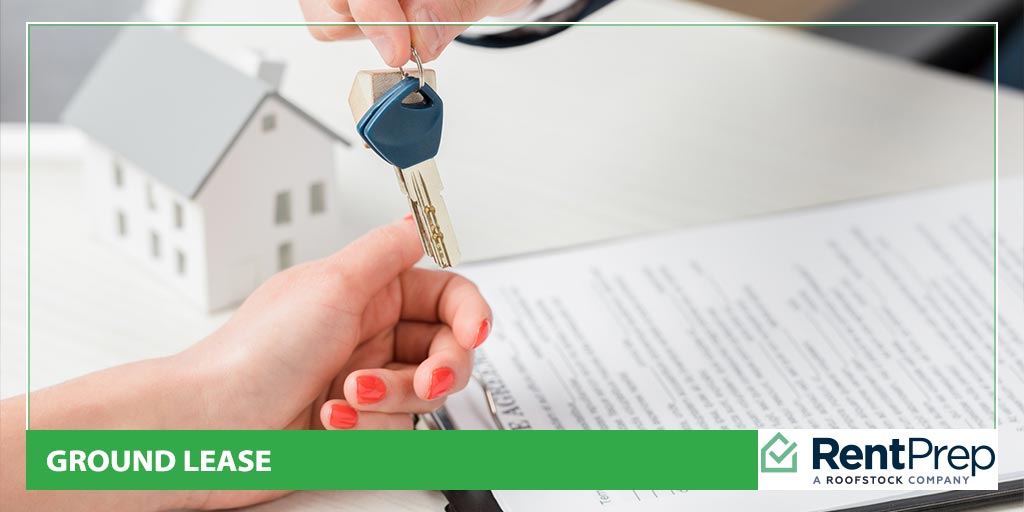
Forbes once recognized ground leases as an often-overlooked development solution, but what advantages do they offer to businesses and property owners alike?
With a ground lease, the landlord leases their property for an extended period, usually 49-99 years. But it’s not a standard lease where the landowner manages the property and must approve any developments made by the tenant. The tenant is free to develop the land and is responsible for maintenance. But when the lease is up, everything on the property reverts to the landlord.
This benefits businesses, which can take control of prime pieces of real estate without the need to find equity to purchase the land. This leaves the business with more resources to develop. Land leases usually involve larger and more expensive pieces of land. Many supermarkets, restaurants, hotels, and factories are built on ground leases.
Landlords with prime real estate can also benefit from long-term, secure rental income with minimal management responsibilities. Plus, a good development can see the property value increase significantly by the end of the lease.
But ground leases are complex legal arrangements that require careful consideration. So, whether you are a large property owner or a company looking for a place to develop your business, this article will cover everything you need to know about ground leases, including the different types, tax implications, plus pros and cons.
Table Of Contents: Ground Lease
While ground leases are usually complex contracts, they’re more common in the real estate world than many people may imagine.
- What Is A Ground Lease?
- Who Uses Ground Leases?
- Subordinated vs Unsubordinated Ground Leases
- Ground Lease Tax Considerations
- Pros And Cons Of Ground Leases For Landlords
- Pros And Cons Of Ground Leases For Tenants
- Ground Lease FAQs
- Is A Ground Lease Right For You?
What Is A Ground Lease?
 A ground lease is very much what it sounds like: a lease for physical land, which is why it’s also sometimes called a land lease.
A ground lease is very much what it sounds like: a lease for physical land, which is why it’s also sometimes called a land lease.
How is this different from a traditional lease? With a ground lease, the landlord is not responsible for any buildings or other structures on the property. Instead, this responsibility lies with the tenant.
The idea of the ground lease is that the landlord retains actual ownership, but the tenant assumes responsibility for the property almost as though they had purchased it. They can build on the land and make any improvements to existing structures. As an extension of this agreement, the tenant is also responsible for property taxes, insurance, and liability.
To make this type of lease attractive for the tenant, the land lease is typically granted for an extended period, usually 50 to 99 years, so that they can make a return on their investment. This is because, when the lease is up, ownership of the land and anything constructed on it returns to the landlord.
Whether a tenant can sublet a ground lease depends on the contract’s specific terms and conditions.
If a tenant wants to break a lease early, a clause in the contract usually allows for this to happen with penalties. It’s harder for landlords to break a ground lease, but conditions for this can also be included in the agreement.
Ground leases are closely related to leasehold estates.
Who Uses Ground Leases?
Ground leases are usually commercial and allow businesses to develop without buying pieces of land that are typically large and expensive. For example, real estate development companies that want to build high-rent-generating structures, such as shopping centers, office buildings, or restaurants, on desirable premises can do so without having the capital to purchase.
Ground leases are also relatively common in the agriculture industry, with farmers and ranchers looking for large tracts of land, especially for seasonal operations.
Often, the landowners who enter into ground leases are government entities or non-profit organizations with property they can’t or don’t want to sell but also don’t have the capacity or capital to develop themselves. A ground lease can provide a source of stable income and encourage development in certain areas without selling public land.
Subordinated vs. Unsubordinated Ground Leases
Ground leases come in two types: subordinated and unsubordinated. This choice of which to use can significantly affect the risks involved.
Subordinated Ground Lease
In this arrangement, the landowner willingly places their land interest below, or subordinate to, that of the tenant’s mortgage lender. This means that if a foreclosure occurs, the lender’s claim takes precedence over the landlord’s.
While this benefits tenants with improved financing and terms, landlords may face a higher risk of property loss if the tenant’s business falters.
Landlords may embrace subordination for potential positive development and higher rents. However, it demands vigilance, as tenant negligence could jeopardize the property.
Unsubordinated Ground Lease
Contrastingly, an unsubordinated ground lease prioritizes the landlord’s interest, shielding it from seizure if the tenant defaults. Though lower risk for landlords, an unsubordinated ground lease can pose challenges in attracting quality tenants, as securing funding becomes more difficult for them.
Expect lower rents and diminished potential for increased property value as tenants’ investments are restricted.
Understanding the nuances of subordination is key for landlords seeking the right balance between risk and reward in ground leases.
Ground Lease Tax Considerations
 Navigating the tax landscape of ground leases involves unraveling the complexities inherent in these types of contracts. While tax implications demand a case-by-case analysis, landlords and tenants should consider key factors.
Navigating the tax landscape of ground leases involves unraveling the complexities inherent in these types of contracts. While tax implications demand a case-by-case analysis, landlords and tenants should consider key factors.
For Landlords: Primary income from a ground lease, typically taxed as regular income, comes from rental income. Lease terms must specify property tax responsibility, usually borne by the tenant, unless stated otherwise.
Importantly, leasing doesn’t trigger capital gains tax for landlords; this applies only in the future, with anticipated appreciation.
For Tenants: Tenants are often responsible for property tax, yet they can usually deduct ground rent as a business cost.
Substantial depreciation deductions are feasible for any property improvements the tenant makes as buildings begin depreciating as soon as they are put into active use.
Transfer Tax Considerations: Temporary transfer of legal interest to the tenant might trigger transfer tax in certain jurisdictions, contingent on the laws of the state where the property is located. For instance, New York exempts transfer taxes for land leases.
Understanding these nuances is vital for both parties to effectively navigate the tax implications of ground leases.
Pros And Cons Of Ground Leases For Landlords
While a landlord will charge a lower rent on a ground lease than a standard lease, the arrangement comes with various benefits for landlords.
- It’s a steady passive income stream with few landlord and active property management responsibilities. Overheads are typically low.
- Landlords retain ownership of the land, which usually increases in value over time, especially as they also take ownership of any improvements made to the property by the tenant at the end of the lease.
- Because ground lease agreements are long-term, they often include rent escalation to account for inflation over the lease term, allowing landlords to hedge against that inflation.
- The tenant pays property taxes, while the landlord’s rental income from ground leases is often subject to favorable tax treatment.
However, landlords should also be aware that they’re sacrificing significant control of their property and will have little say over how the tenant develops and uses it. If the tenant develops the property poorly or underutilizes it, there is very little the landlord can do.
While the landlord can benefit if the property is developed well, they can incur costs if it’s developed poorly and later requires significant renovation or demolition.
The long-term commitment to a ground lease can limit a landlord’s options when it comes to selling property since many potential buyers will not want to purchase land they cannot use right away.
Pros And Cons Of Ground Leases For Tenants
For tenants, there are various benefits to choosing a ground lease over purchasing property or more traditional rental options.
- You can access prime property locations that might otherwise be too expensive to purchase. This is particularly important for industries such as retail.
- When starting a new business or development, signing a land lease can significantly reduce outlay costs, allowing more investment in other activities, such as construction.
- Unlike standard rentals, where the tenant has little control over the property and must rely on the landlord for a variety of services, with a ground lease, you have broad control of the property to develop it how you see fit.
- Rental payments on ground leases are often tax-deductible as a business expense.
However, tenants should be aware of their future plans, as signing a land lease requires a long-term commitment that can be expensive to break if circumstances change.
While rents are typically lower with ground leases than other types of leases, tenants should also factor in that rent does increase over time with inflation.
It can be challenging for some tenants with ground leases to find funding for projects since not owning the land can make investment seem less desirable and higher risk to lenders.
Also, what you invest in property development ultimately reverts to the landlord, so tenants need a strategy to generate a return on their investment while the property is in their hands.
Ground Lease FAQs
Below are answers to some of the most frequently asked landlord questions about ground leases.
What is a ground lease?
A ground lease is a long-term lease agreement where a tenant rents land from the landlord and is permitted to develop or improve the land. The landlord retains ownership of the land, but the tenant owns the buildings or improvements for the duration of the lease.
How long do ground leases last?
Ground leases are typically long-term arrangements, often spanning 50 to 99 years. The long duration allows tenants to make significant investments in the property, such as constructing buildings.
Who pays taxes, insurance, and maintenance on a ground lease?
With most ground leases, the tenant is responsible for all costs associated with the property, including property taxes, insurance, and maintenance for both the land and any structures on it.
What happens to the buildings at the end of a ground lease?
At the end of a ground lease, ownership of the buildings and improvements usually reverts to the landowner unless the lease is renewed or specific terms are set for the removal of the buildings.
Can a ground lease be terminated early?
Ground lease agreements can include early termination clauses. Typically, however, these leases are binding until the end of the term unless both parties agree to terminate early or specific conditions for termination are met.
Are ground lease payments tax deductible?
For tenants, ground lease payments are often tax-deductible as a business expense. However, tenants should consult a tax professional for advice based on their specific circumstances.
Is A Ground Lease Right For You?
Ground leases are more common than many people realize. Chances are, for example, that your local McDonald’s sits on a property controlled by a ground lease. Many Macy’s department stores also operate on ground leases. In January 2023, the company reported that it had $3 billion tied up in long-term lease liability.
For landlords, a ground lease can make sense to earn a return on investment on property they don’t want to, or are unable to, develop themselves but don’t want to sell. That said, choosing the right tenant is essential as you’re trusting them to develop your land, and if you agree to a subordinated ground lease, your ownership depends on them running their business successfully.
For tenants, ground leases make sense for businesses that need large or expensive pieces of land in prime locations for business success. However, they need to have a plan in place to realize their return on investment during the lifetime of the lease.
Ground leases can be complex agreements and typically require the assistance of an experienced property lawyer. But done right, they can be very beneficial to both the landlord and the tenant.
Note: RentPrep does not provide tax, legal or accounting advice. This material has been prepared for informational purposes only and is not intended to provide, and should not be relied on for, tax, legal, or accounting advice. You should consult your own tax, legal, or accounting advisors.

